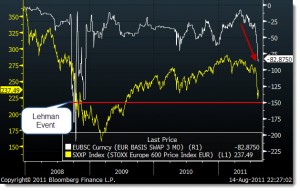Already under investigation by regulators in the U.S. and Europe, Google likely will have to quell a couple of tricky antitrust questions as part of completing the $12.5 billion acquisition of Motorola Mobility, antitrust experts say.
By Kimihiro Hoshino, AFP/Getty Images
One set of challenges could come from the top makers of Google Android smartphones, most of whom issued perfunctory statements welcoming the deal. Industry experts say HTC, Samsung, LG, Kyocera and Sony Ericsson have plenty of reasons to be wary of the merger. "Right now the people who make Android handsets are very concerned," says Gary Reback, the Silicon Valley antitrust attorney who was a key figure in the Microsoft antitrust case a decade ago. "Google has now gone into business against them."
An estimated 8.5 million Americans use Motorola-made Android handsets, while 8 million use HTC and 6.2 million use Samsung models, according to ComScore Media Metrix.
Ted Morgan, CEO of Skyhook Wireless, a Boston-based supplier of location-tracking technology, says Android handset makers can expect Google to aggressively promote Motorola Mobility models over their brands.
Skyhook is suing Google for allegedly using strong-arm tactics to block Motorola Mobility and Samsung from fulfilling contracts to use Skyhook's technology, instead of Google's location-tracking system, in Android handsets. The search giant "will favor the handset maker that furthers their strategic interests," Morgan says. "And now they have $12 billion in strategic interests to look out for."
http://www.usatoday.com/tech/news/2011-08-15-google-motorola-antitrust_n.htm
Euro Basis Swaps Nearing Crisis Levels (Chart)
Bloomberg had a very interesting story and a target to watch as the EuroZone crisis continues to roll along…
Aug. 15 (Bloomberg) — The premium European banks are paying to borrow in dollars through the swaps market is at the most extreme level since the credit crisis of 2008, signaling the rout in equities may have further to go, according to Christopher Street Capital. The CHART OF THE DAY shows the cost of converting euro-based payments into dollars as measured by the three-month cross-currency basis swap, which CSC’s Conor Howell said is key for measuring the “true euro-zone liquidity crunch.” It last week fell as much as 93 basis points below the euro interbank offered rate, or Euribor, indicating a higher premium to buy the greenback.

